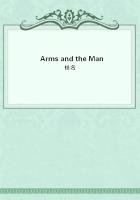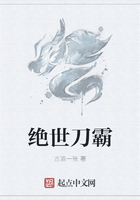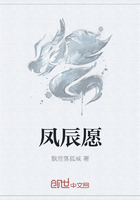"Then I'll tell you something I can't stomach any more. I'll die if I have to."
"Well?" he questioned, after a searching pause.
"It's up to you," she said.
"Then fire away."
"You don't know what you're letting yourself in for," she warned.
"Maybe you'd better back out before it's too late."
He shook his head stubbornly.
"What you don't want to stomach you ain't goin' to stomach. Let her go."
"First," she commenced, "no more slugging of scabs."
His mouth opened, but he checked the involuntary protest.
"And, second, no more Oakland."
"I don't get that last."
"No more Oakland. No more living in Oakland. I'll die if I have to. It's pull up stakes and get out."
He digested this slowly.
"Where?" he asked finally.
"Anywhere. Everywhere. Smoke a cigarette and think it over."
He shook his head and studied her.
"You mean that?" he asked at length.
"I do. I want to chuck Oakland just as hard as you wanted to chuck the beefsteak, the coffee, and the butter."
She could see him brace himself. She could feel him brace his very body ere he answered.
"All right then, if that's what you want. We'll quit Oakland.
We'll quit it cold. God damn it, anyway, it never done nothin' for me, an' I guess I'm husky enough to scratch for us both anywheres. An' now that's settled, just tell me what you got it in for Oakland for."
And she told him all she had thought out, marshaled all the facts in her indictment of Oakland, omitting nothing, not even her last visit to Doctor Hentley's office nor Billy's drinking. He but drew her closer and proclaimed his resolves anew. The time passed. The fried potatoes grew cold, and the stove went out.
When a pause came, Billy stood up, still holding her. He glanced at the fried potatoes.
"Stone cold," he said, then turned to her. "Come on. Put on your prettiest. We're goin' up town for something to eat an' to celebrate. I guess we got a celebration comin', seein' as we're going to pull up stakes an' pull our freight from the old burg.
An' we won't have to walk. I can borrow a dime from the barber, an' I got enough junk to hock for a blowout."
His junk proved to be several gold medals won in his ******* days at boxing tournaments. Once up town and in the pawnshop, Uncle Sam seemed thoroughly versed in the value of the medals, and Billy jingled a handful of silver in his pocket as they walked out.
He was as hilarious as a boy, and she joined in his good spirits.
When he stopped at a corner cigar store to buy a sack of Bull Durham, he changed his mind and bought Imperials.
"Oh, I'm a regular devil," he laughed. "Nothing's too good to-day--not even tailor-made smokes. An' no chop houses nor Jap joints for you an' me. It's Barnum's."
They strolled to the restaurant at Seventh and Broadway where they had had their wedding supper.
"Let's make believed we're not married," Saxon suggested.
"Sure," he agreed, "--an' take a private room so as the waiter'll have to knock on the door each time he comes in."
Saxon demurred at that.
"It will be too expensive, Billy. You'll have to tip him for the knocking. We'll take the regular dining room."
"Order anything you want," Billy said largely, when they were seated. "Here's family porterhouse, a dollar an' a half. What d'ye say?"
"And hash-browned," she abetted, "and coffee extra special, and some oysters first--I want to compare them with the rock oysters."
Billy nodded, and looked up from the bill of fare.
"Here's mussels bordelay. Try an order of them, too, an' see if they beat your Rock Wall ones."
"Why not?" Saxon cried, her eyes dancing. "The world is ours.
We're just travelers through this town."
"Yep, that's the stuff," Billy muttered absently. He was looking at the theater column. He lifted his eyes from the paper.
"Matinee at Bell's. We can get reserved seats for a quarter.--Doggone the luck anyway!"
His exclamation was so aggrieved and violent that it brought alarm into her eyes.















